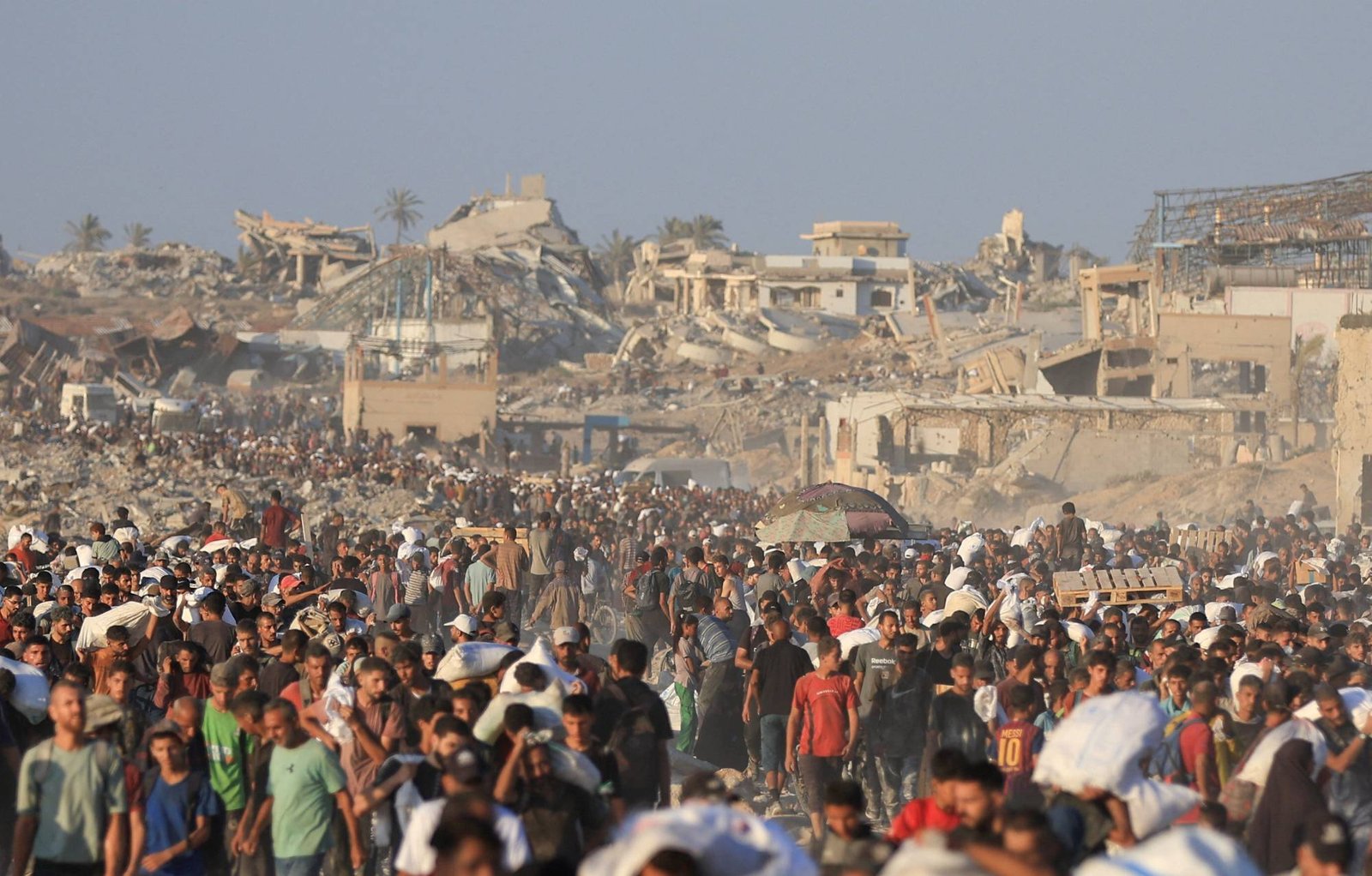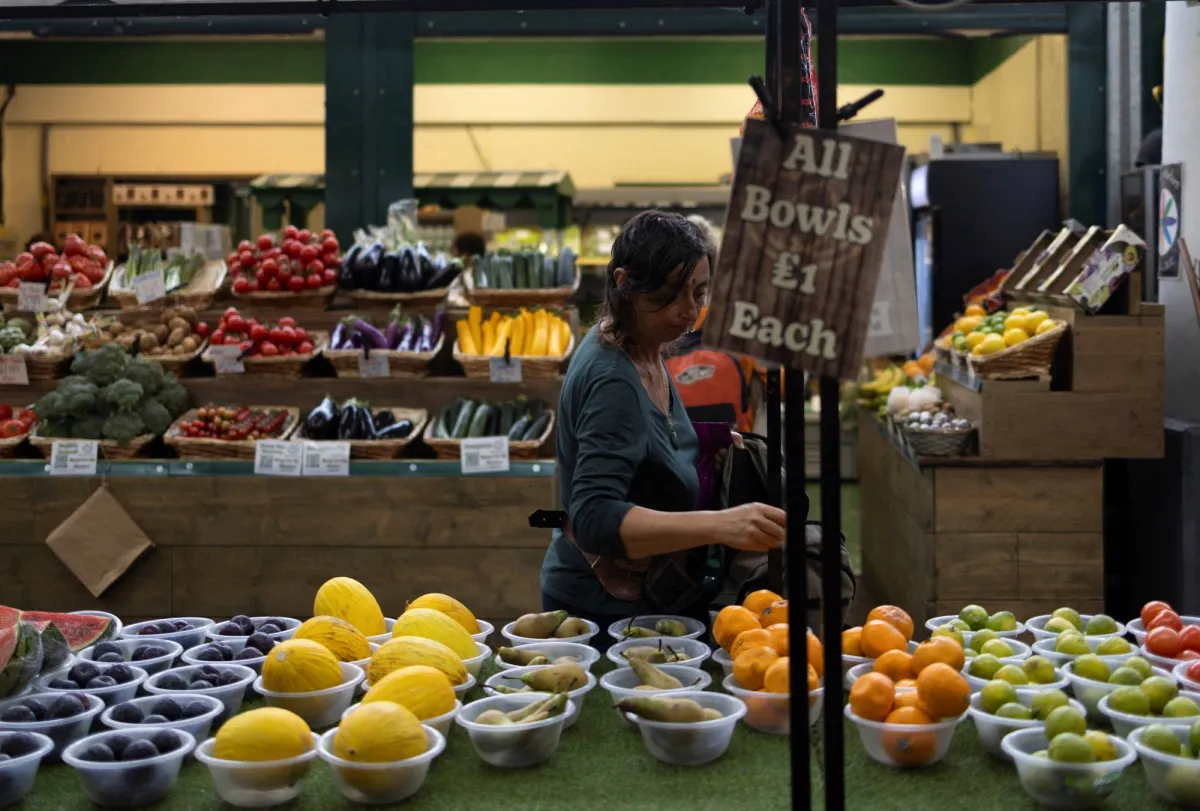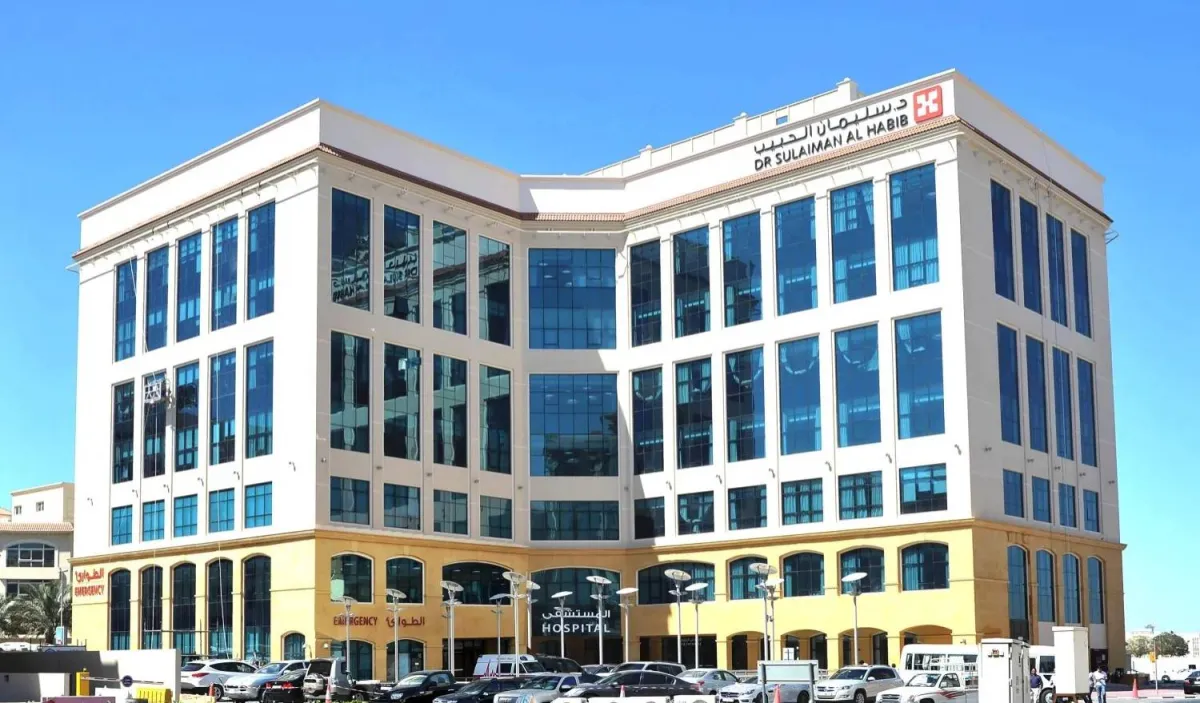The United Nations Office for the Coordination of Humanitarian Affairs (OCHA) said on Wednesday that the conditions for delivering aid to Gaza “are far from being sufficient” to meet the huge needs of the “desperate and hungry” sector.
The office added that fuel shipments are still far from the quantities needed to continue operating health, emergency, water and communications services in the besieged Palestinian sector.
In light of extensive international pressure, Israel announced, on Sunday, a daily “tactical truce” in specific areas of Gaza for humanitarian purposes, and enabled international agencies and other humanitarian organizations to distribute foodstuffs in the packed sector, which exceeds two million people.
The office promised that these truce “do not allow the continuous flow of the supplies needed to meet the great needs in Gaza.”
The UN agency said: “While the United Nations and its partners take advantage of any opportunity to support the needy people during the unilateral tactical truce, the conditions for delivering aid and supplies are still far from being sufficient.”
She explained: “For example, for the United Nations drivers to reach the Karam Abu Salem crossing, an incidental area.

The office said that despite the Israeli “tactical” truce “, they are still registering deaths due to hunger and malnutrition, and deaths and injuries are killed and wounded in the ranks of aid.
He pointed to the continuation of “desperate and hungry” people to empty small quantities of aid from trucks entering the crossing.
He warned that “the quantities of fuel that are currently inserted are not enough” to meet the vital rescue needs and “represent a drop in the vicinity.”
The “integrated phased classification of food security” that the United Nations and issued on Tuesday warned that the humanitarian crisis “has reached a severe turning point of concern and deadly”, and said that “the worst star of famine is now happening” in the Gaza Strip.
He called on the office to open all the crossings leading to Gaza and to allow the introduction of large quantities of humanitarian and commercial supplies.



